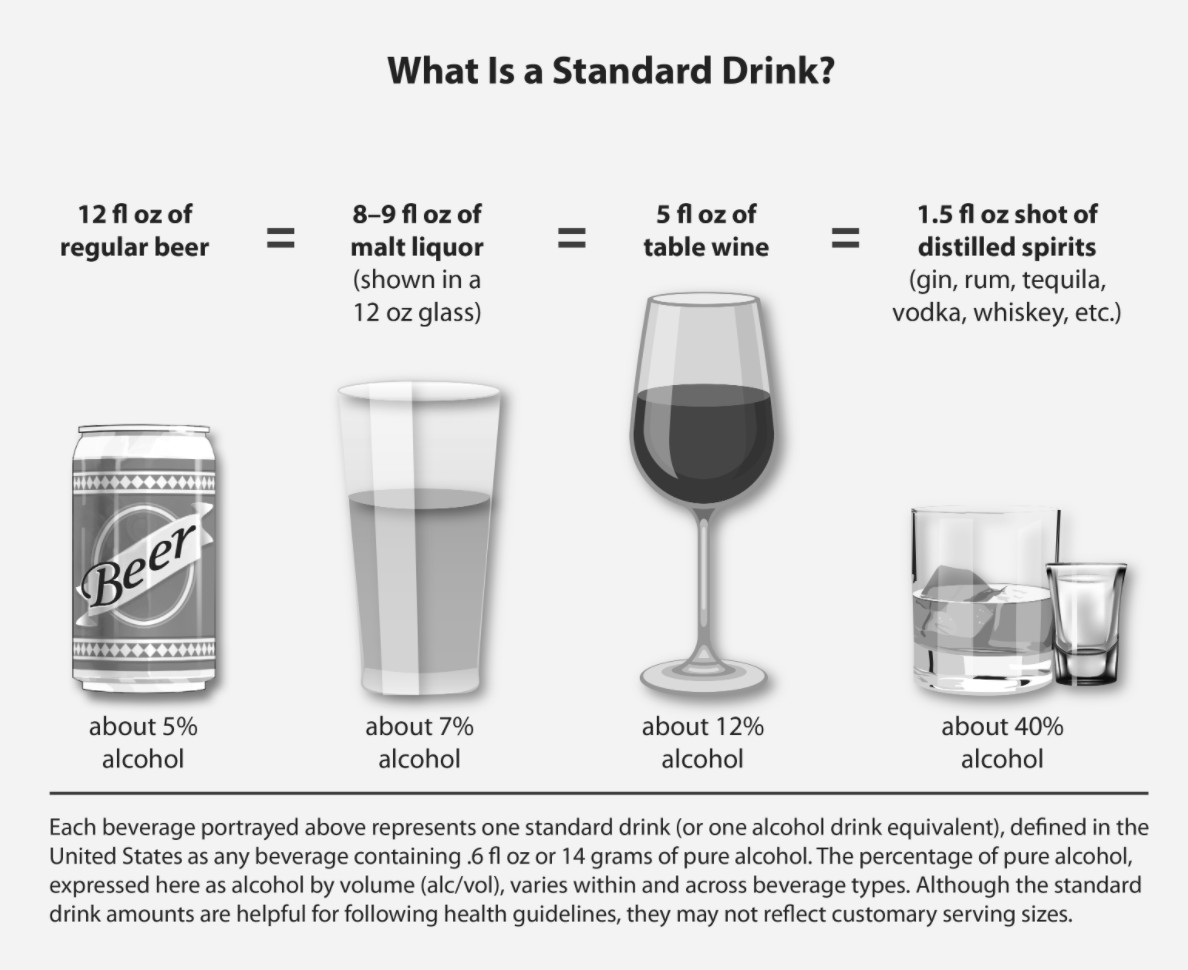Having an alcoholic drink or two is often unavoidable in social settings, or simply as a means to unwind and relax. While heavy consumption is known to cause dependency, liver damage and increased risk for heart disease and stroke, some studies have suggested health benefits of alcohol when taken in moderation. Also, which is better? Read on to find out the sobering truth about the nutritional value of the various alcoholic beverages.
Beer
Beer is easily a staple in any occasion as it caters to many drinkers. It can be lager beers, ales, wheat beers, or fruit beers. A serving of regular beer (i.e. a can of beer or a tall cup in Starbucks) is typically 12 ounces (355ml) and contains about 150 calories.
The term “beer belly” is so coined because of the inexorable weight gain or development of an unsightly abdominal overhang from overdoing these liquid calories. Especially since these liquids do not cause a feeling of satiety, unlike solid food. Where possible, opt for a “light” beer which is less decadent at 64-110 calories.
Beer is brewed from grains (barley), hops or yeast and is thus packed with B vitamins riboflavin and thiamine, plus other minerals like magnesium, calcium and iron. It also contains more protein and fibre, but less polyphenols compared to wine. Polyphenols are antioxidants; they purportedly reduce cellular damage and oxidative stress which have been linked to heart disease, neurodegenerative diseases like Alzheimer’s, and cancers.
Wine

Wine beverages include:
- Red wine
- Rose wine
- White wine
- Champagne or sparkling wine
- Fortified wines
One serving is usually 5 ounces (148ml) and also has small quantities of iron, magnesium, potassium, manganese and phosphorus. It is less calorie-dense than beer at around 90 calories per serving.
The key health benefits of wine are due in particular to an antioxidant or polyphenol called Resveratrol, found in the skin of red and purple grapes. As red wine is fermented with grape skins while white wine is not, the latter contains less Resveratrol in comparison.
Some research has shown that Resveratrol:
- Counteracts bad cholesterol build-up
- Lowers risk of inflammation
- Lowers risk of blood clotting
Thereby reducing risk of heart disease when consumed in moderation. The following servings are suggested as moderate consumption of wine:
- 1 serving daily – women 21 years old and above, and men over 65 years old
- 2 servings daily – men between 21-65 years old
Spirits/Distilled Drinks
Spirits or distilled drinks are processed alcoholic beverages to make them stronger, also termed hard liquors. These are:
- Vodka: made from grains or potatoes
- Brandy: made from fermented fruit
- Whiskey (scotch, bourbon): made from fermented grain mash
- Rum: made from sugarcane juice or molasses
- Tequila: made from blue agave plant
- Gin: made from neutral grains (rye, barley, wheat, corn) or juniper berries
- Absinthe: made from flowers
- Ouzo: made from anise
- Liqueurs: liquor with sweeteners or flavors made from herbs, nuts, fruits, spices, and flowers
Hard liquors hardly contain any vitamins or minerals, but are generally lower in calories and sugar, unless paired with milk, fruit juices or drink mixes. For example, a single serving (1.5 ounces or 44ml) of 40% ABV Vodka contains about 90 calories. But since hard liquor gives that desired alcohol kick the soonest, this might be the best option for a low caloric drink since a shot or two is enough to experience the “high”. Other suggested benefits with moderate consumption include improved blood circulation with Vodka, and symptomatic relief from flu symptoms with whiskey – more specifically a Hot Toddy.
Weighing Risks and Benefits
For certain populations e.g. pregnant women, people with pancreatic and liver diseases, people on medications that may interact with alcohol, it is best to abstain from alcohol entirely.
Alcohol consumption is a double-edged sword. Heavy alcohol consumption ( ≥8 drinks/week for women, ≥15 drinks/week for men) has been consistently linked with increased morbidity and mortality. Moderate consumption of alcohol may potentially be beneficial, but more conclusive research needs to be done to validate this association.
But one thing’s for sure: a healthy lifestyle with regular exercise and healthful diet will go a longer way in preventing heart disease, cancers and illnesses. For example, increasing one’s intake from one to two servings daily of tea, coffee, berries, onions, or apples provides a much higher amount of polyphenols than having an extra glass of red wine.
Wine and spirits are generally lower in calories whilst beer and wine have more nutritional value and possibly health benefits. As it is, if you enjoy alcohol, are free of medical complications and avoid binge-drinking, there is no compelling reason to avoid it. However, if you have always been a teetotaller, there is no need to start drinking for its purported health benefits.
Interested to learn more about what a Gastroenterologist thinks about alcohol? Watch the video below!













